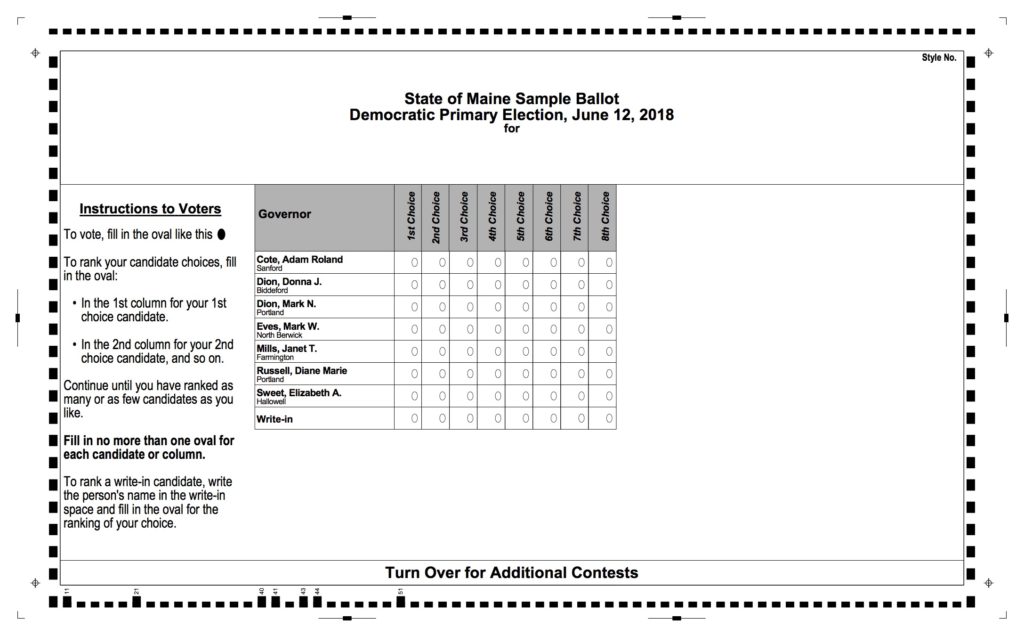By Jessica Pike, Staff Writer
The 2018 State general elections are coming up for the primary on November 6 for the Senate, House of Representatives, Governor and more. The closed primary elections will be held on June 12, which is when a voter must affiliate formally with a political party in advance of the election date in order to participate in that party’s primary. Closed primary elections are only held in fifteen of the U.S states, including Maine. The general election that is held on November 6, will have candidates that were chosen from the preceding primary election votes.

For the upcoming gubernatorial election, there are currently seven Democratic candidates running for Governor, four Republican candidates, one Libertarian, two Green Party, and lastly six candidates from the Independent party, not counting those who have withdrew. Race ratings according to Inside Elections with Nathan L. Gonzales and Larry J. Sabato’s Crystal Ball are leaning towards the Democrat Party to replace the present Republican Governor, Paul LePage. LePage is serving his last term for governor as imposed by the term limits of two terms or eight years, and many notable candidates are running to replace him.
Some examples on the Republican side include LePage’s previous Health and Human Services Commissioner, Mary Mayhew; Maine Senate President Michael Thibodeau; State Senate Majority Leader Garrett Mason; Maine House of Representatives Minority Leader Ken Fredette; and Shawn Moody, an auto-body repair entrepreneur who ran as an independent against LePage in 2010. On the Democratic side, the high-profile candidates include Maine Attorney General Janet Mills; Mark Eves, former speaker of the Maine House of Representatives; Adam Cote, a lawyer with 20 years of service in the Maine Army National Guard, including combat deployments to Iraq and Afghanistan; Mark Dion, a former county sheriff and State Senator from Cumberland County, home of the state’s largest city, Portland; and longtime liberal activist and State House lobbyist, Betsy Sweet.
This year voting in Maine will be unique as it is the first state to adopt the ranked-choice voting system for statewide primaries, as Christopher Cousins reported for Bangor Daily News. Ranked choice voting gives people the ability to rank from their favorite to least favorite candidate on the ballot and goes by majority. Even though ranked choice voting is so popular, opponents argue that it is in conflict with the state constitution, or at least in part. It is deemed unconstitutional because according to the Maine Constitution, candidates are supposed to be elected by the plurality of the voters, meaning not from a majority but instead from the number of votes that are cast and the number more a candidate compared to another.
As for the Maine State Legislature of 2018, there are a total of 35 members of the State Senate, 17 of which are a part of the Democratic Party, and 18 apart of the Republican Party. All of the 35 district seats are up for the approaching election, resulting in a fight for the Democrats to regain control of the Senate this year. For the House of Representatives, there are a total of 151 members, 74 from the Democrats, 70 from the Republicans, six from the Independent party, and one from the Green Party. All of the seats are also in the running for this election, where the Democrats have the party control. However, quite a few of the candidate seats are left with holes, meaning that not all of the contestor spots are filled.

